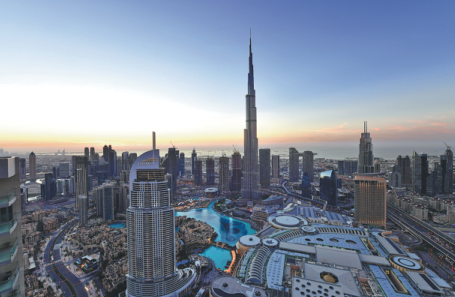Warehouses host glitzy Dubai's 'hipster' scene
(AGENCE FRANCE-PRESSE) Updated: 2020-01-20 00:00DUBAI-In the glitzy city of Dubai, known for its megaprojects, futuristic skyscrapers and ostentatious malls, Dana Alhammadi sat in a cozy cafe learning how to make natural beauty products.
The "environmentally conscious" workshop at the KAVE cafe is part of an emerging cultural scene in a city which, after years of breakneck development, is exploring its alternative side.
If Dubai has a hipster center, it is Alserkal Avenue, an industrial area full of warehouses large and small that in 2008 became a hub for art galleries, startup businesses, and quirky retail outlets.
"It's really nice to know how to get something natural and to stop using a lot of chemicals," said Alhammadi, dressed in a traditional full-length abaya.
She was mixing bicarbonate of soda with coconut oil to make a backto-basics deodorant, jazz legend Nina Simone audible in the background.
"I'm happy that they started such activities and workshops here in the United Arab Emirates," Alhammadi said.
Home to more than nine million expatriates from well more than 100 countries, making up 90 percent of the population, the United Arab Emirates, or UAE, prides itself on being a melting pot.
Like other Gulf countries, it uses culture, media and sports events to win global recognition and push its soft power.
It has spent billions of dollars on high-profile museums and mega events, such as the Louvre Abu Dhabi and Dubai Expo 2020 trade fair.
The oil-rich country also hosts cultural events, ranging from jazz and film festivals to fashion week.
A culture economy
With the discovery of oil in the mid-20th century, the UAE transformed from a tiny economy dependent on the pearl and fishing industries to a regional powerhouse and hub for trade and tourism.
Many tourists are drawn by the headline attractions: Malls packed with high-end brands, luxury resorts, man-made islands and an indoor ski slope.
But Dubai's ultrarapid rise resulted in what some see as a lack of cultural authenticity that in other capitals develops organically over time.
Alserkal, which hosts about 500 events a year, generally free of charge, is intended to create that cultural texture.
The project's director Vilma Jurkute said the community supports 70 projects by young men and women from different nationalities, attracting half a million visitors each year.
"It's essentially a community of thought leaders in literature, films, theater, and community development that formed a key pillar of a culture economy for the city of Dubai (and) for the region," the Lithuanian expatriate said.
Located in a light industrial district and embracing warehouse buildings that range from the sleek to the shabby, Alserkal represents an alternative to what Dubai is best known for, Jurkute added.
"We really are part of the city and we have been for the past decade," she said.
One of Alserkal's most prominent attractions is its Cinema Akil, the first and only art cinema in the Gulf, offering audiences a different film experience, according to the theater's deputy director Luz Villamil.
Every night independent films are played in the cinema, whose red armchairs and sofas, posters of old Arab classics and a cozy cafe help it to stand out from Dubai's usual blockbuster multiplexes.
Recent screenings have included Papicha by Algeria's Mounia Meddour and Capernaum by Lebanese director Nadine Labaki.
Next month, Akil will show You Will Die At Twenty by Sudanese filmmaker Amjad Abu Alala.
Sometimes, the screenings are followed by debates in the small theater.
Before it opened there was almost no choice for audiences interested in something other than Hollywood or Bollywood blockbusters, Villamil said.
"The most important thing for us is to show films that highlight voices that perhaps we feel… don't get represented very much, including Arab cinema and women-focused films."

- 'Cooperation is complementary'
- Worldwide manhunt nets 50th fugitive
- China-Japan meet seeks cooperation
- Agency ensuring natural gas supply
- Global manhunt sees China catch its 50th fugitive
- Call for 'Red Boat Spirit' a noble goal, official says
- China 'open to world' of foreign talent
- Free trade studies agreed on as Li meets with Canadian PM Trudeau
- Emojis on austerity rules from top anti-graft authority go viral
- Xi: All aboard internet express











